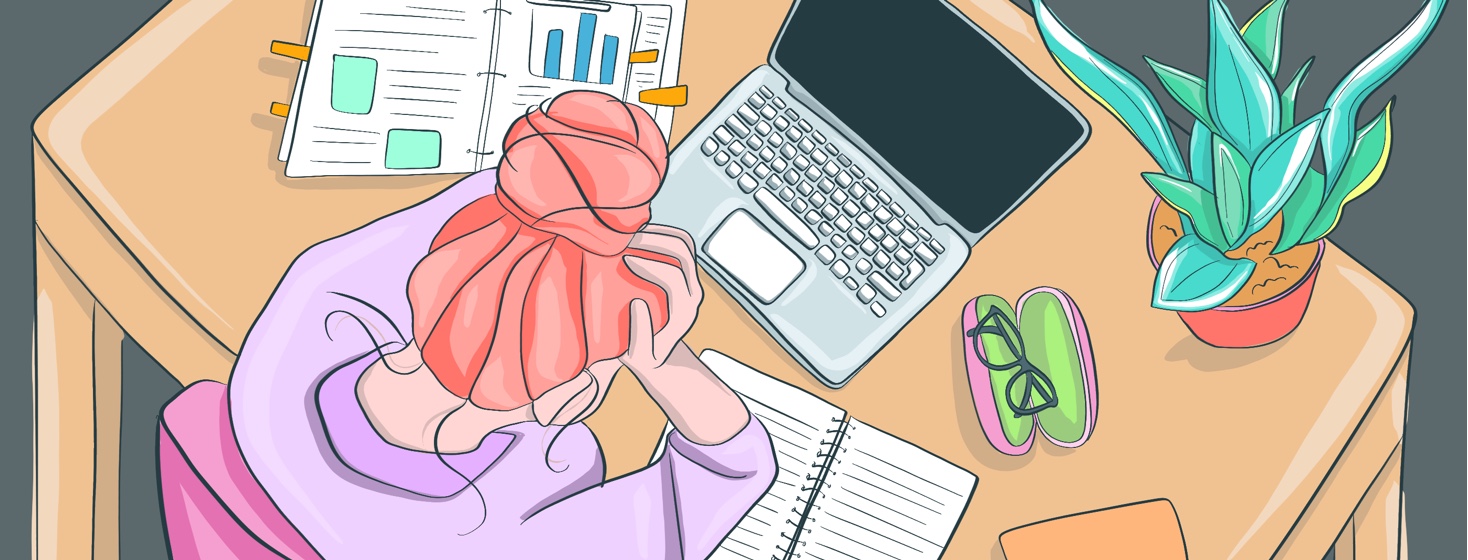Managing Your Career After Ovarian Cancer
An ovarian cancer diagnosis comes with many challenges, both personal and professional. You will likely need to navigate how, or if, to tell your employer about your diagnosis. And, you will need to balance your work life with cancer treatment. It can all be overwhelming, but there are ways to manage.
Talking with your employer
Sharing your cancer diagnosis at work is a personal decision. You may want to tell your colleagues or keep your health information private. As you make a decision, here are some things to think about:1
- Will cancer and cancer treatment make it hard for you to do your job?
- Will you request reasonable accommodations? If so, you must reveal that you have a medical condition, though not cancer specifically.
- What is your workplace culture like? Consider if it is formal or informal and how co-workers have responded to illness in the past.
While you may want or need to be transparent with your employer about your cancer diagnosis, it is also important to understand your rights. The Health Insurance Portability and Accountability Act (HIPAA) protects your health information. You can decide who sees it and that they only share relevant details with your permission.2
Workplace discrimination
The Americans with Disabilities Act (ADA) protects qualified people with cancer from discrimination at work. The law covers workplaces with 15 or more employees. These employers are also required to provide reasonable accommodations that allow you to continue working. Possible accommodations include:3,4
- Flexible work schedule (part-time, remote work, or full-time with adjusted hours)
- Different duties
- More breaks
- Modified workspace (accessible equipment, furniture, or physical location)
Keep an eye out for signs that colleagues are treating you unfairly. If you suspect discrimination, take detailed notes about what happened and talk to your manager or HR representative. In some cases, you may need an attorney’s advice.
Taking time away from work
If you decide to take time off from work after a cancer diagnosis, there are several ways eligible employees can protect their job and income:5-7
- Family and Medical Leave Act – FMLA allows workers with serious health conditions to take up to 12 weeks of unpaid leave without losing their job or health benefits.
- Social Security Disability Insurance – SSDI provides monthly payments to workers who have paid social security taxes and have stopped working due to a disability.
- Consolidated Omnibus Budget Reconciliation Act – COBRA provides healthcare coverage to workers after leaving their job or reducing their work hours.
Having cancer at work
You may decide to continue working during your cancer treatment, or you may take some time away from the office. Either way, there are several things to consider:8,9
- Schedule. Will you work full-time, or is a part-time schedule more doable? Mornings or afternoons? Think about the medicines you are taking and their side effects, like drowsiness.
- Getting back into a routine. If you have been away from the office for cancer treatment, it can be hard to get back into the swing of things. Take your time. Start by returning missed phone calls and emails. When you are up to it, brush up on your work skills by attending seminars and industry events.
- Working with chemo brain. Whether or not you have had chemotherapy, you may experience what experts call “chemo brain.” It is trouble with your memory – recalling names, how to complete work tasks or just a general mental fog. Try these tips for fighting chemo brain at work:
- Lower stress. It can harm your thinking and work performance. Try deep breathing techniques when you are feeling stressed.
- Make a list. Write down what you would like to accomplish each day, and focus on 1 task at a time.
- Set reminders. Calendar alerts and other notifications can help remind you about meetings and project due dates.
Do you have any advice on managing work and cancer? Join or start a conversation!

Join the conversation